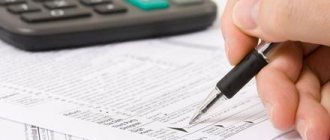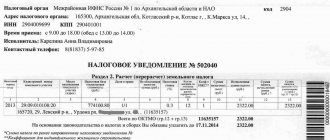Hello! In this article we will talk about the specifics of the excise tax.
Today you will learn:
- What goods and transactions with them are subject to excise tax;
- How to calculate excise tax and where to look at its rates;
- What legislative changes on excise taxes from 2021 have excited Russian business.
Calculation of the amount of accrued excise tax
Calculate the amount of accrued excise tax for each transaction and for each type of tax rate (clauses 4, 5 of Article 194 of the Tax Code of the Russian Federation) using the formula:
| Excise tax to accrue = Tax base × Excise tax rate |
Determine the tax base in accordance with Articles 182, 187, 189–191 of the Tax Code of the Russian Federation. The procedure for determining the tax base depends on the type of tax rates established for various excisable goods.
For more information on determining the object of taxation for specific transactions, see:
- How to calculate excise tax on operations with straight-run gasoline;
- How to calculate excise tax on transactions with denatured ethyl alcohol;
- How to calculate excise tax on the sale of excisable goods;
- How to calculate excise tax under a contract for the processing of customer-supplied raw materials;
- How to pay excise tax when using goods within an organization.
Determine the total amount of accrued excise tax for all transactions, the date of which relates to the current tax period - month (Clause 5 of Article 194, Article 192 of the Tax Code of the Russian Federation).
Use the formula:
| Excise tax to be charged | = | The amount of excise tax calculated at a fixed rate (subclause 1, clause 2, article 187 of the Tax Code of the Russian Federation) | + | The amount of excise tax calculated at the combined rate (subclause 4, clause 2, article 187 of the Tax Code of the Russian Federation) |
Excise products and exceptions to the general rule
Article 181 of the Tax Code offers an exhaustive list of excisable goods.
All these numerous names can be divided into groups:
| Conditional group | Examples |
| 1. Liquids containing alcohol | Ethyl alcohol, raw alcohol, emulsions, suspensions, vodka, liqueurs, wine, mead, beer, cognac |
| 2. Smoking/Inhalation Products | Tobacco, cigarettes, cigars, disposable electronic cigarettes and liquids for them |
| 3. Transport | Passenger cars, motorcycles over 150 hp. |
| 4. Flammable liquids | Gasoline, diesel fuel, motor oil, aviation kerosene, natural gas |
The same 181st article lists products that can be “suspected” of belonging to excisable goods, but in reality they are not subject to this tax:
- Medicines;
- Veterinary drugs;
- Perfume and cosmetic liquid in containers up to 100 ml;
- Waste from alcohol production;
- Wine materials, must.
Calculation of excise tax payable
An organization can reduce the total amount of tax by the amount of excise tax accepted for deduction.
Calculate the amount of excise tax payable to the budget using the formula:
| Excise tax payable = Excise tax accrued – Excise tax accepted for deduction |
Such rules are established in paragraph 1 of Article 202 of the Tax Code of the Russian Federation.
For information on paying excise duty when importing goods into Russia, see How to calculate excise duty when importing excisable goods.
Features of excise tax
An excise tax is a tax on consumer goods that are more of a luxury than a necessity and are often considered harmful to health.
The state never imposes an excise tax on the consumer basket - that is, such a minimum set of goods and services that help a person maintain vital energy and ensure minimal comfort: bread, eggs, milk, bed linen, school supplies, gas supply...
On the other hand, lovers of cigarettes, wine and vodka products and adherents of driving their own cars are considered wealthy citizens with extra funds, and they ultimately pay the excise tax included in the price of the product.
The state in this case acts to some extent like Robin Hood, leaving the poor with their modest provisions for survival and robbing the rich. With the small difference that the money of the rich is not transferred to the poor, but to the treasury.
Payment of excise taxes is a colossal source of cash injections into the budget. It is enough to imagine that for some products the excise tax is half of its cost, and sometimes two-thirds of the price. In addition, excise taxes serve as a convenient tool for government regulation of demand for certain groups of goods.
Deadlines for paying excise duty
As a general rule, the calculated amount of excise tax must be transferred to the budget no later than the 25th day of the month following the tax period (clause 3 of Article 204 of the Tax Code of the Russian Federation). So, for example, excise tax for March must be paid no later than April 25.
There are exceptions to this rule. When performing certain transactions, excise tax must be paid at a later date.
1. No later than the 25th day of the third month following the reporting tax period, organizations that (if they have the appropriate evidence) carry out transactions with straight-run gasoline (benzene, paraxylene, orthoxylene, aviation kerosene), denatured ethyl alcohol and middle distillates must pay excise tax (Clause 3.1 of Article 204 of the Tax Code of the Russian Federation).
For example, an organization that processes straight-run gasoline and has a certificate for the production of petrochemical products transfers the excise tax calculated for March to the budget no later than June 25.
2. For the transactions listed below, excise duty must be paid no later than the 25th day of the sixth month following the tax period in which these transactions were made:
2.1. Sales of middle distillates to foreign companies in Russia:
- Russian organizations included in the register of bunker fuel suppliers;
- Russian organizations licensed to conduct loading and unloading activities (in relation to dangerous goods in railway transport, inland water transport, and seaports);
- Russian organizations that use facilities for bunkering (refueling) of water vessels on the basis of agreements with companies included in the register of bunker fuel suppliers.
2.2. Sales outside Russia of middle distillates purchased as property and placed under the customs export procedure. At the same time, the buyers of this product are foreign companies that:
- entered into agreements with a Russian organization - the owner of a license to use a subsoil plot of the continental shelf of the Russian Federation or with a contractor engaged by a user of subsoil for the creation, operation, use of installations and structures specified in subparagraph 2 of paragraph 1 of Article 179.5 of the Tax Code of the Russian Federation;
- on the basis of these contracts, perform work (provide services) related to geological study, exploration and (or) production of hydrocarbons on the continental shelf of the Russian Federation.
This is stated in paragraph 3.2 of Article 204 of the Tax Code of the Russian Federation.
If an organization carries out transactions with different deadlines for paying excise duty and maintains separate records of these transactions, transfer the amount of excise duty for each type of transaction separately within the time limits established by the Tax Code of the Russian Federation. This follows from the provisions of Article 204 of the Tax Code of the Russian Federation.
If the 25th falls on a non-working day, then pay the excise tax no later than the first working day following the non-working day (Clause 7, Article 6.1 of the Tax Code of the Russian Federation).
There is an exception to this rule - payment of tax on updated declarations. If, as a result of an error, the tax base for the excise tax was underestimated, before submitting updated returns for these periods, you must pay the full amount of additional tax and penalties for the entire period of delay.
For information on the deadlines for paying excise duty when importing goods into Russia, see How to calculate excise duty when importing excisable goods.
The role of the country's tax system
Definition 2
The tax system is an instrument of state power, based on the principles of legal relations in society, formed regarding the establishment and collection of taxes.
Taxes have existed since the emergence of statehood. With their help, the needs of the administrative apparatus are financed, and the social needs of society are compensated. Taxes form a centralized budget, thanks to which the state can perform the functions assigned to it.
Note 1
The state budget serves as the main financial system of the country. The budget is an economic relationship aimed at the centralized accumulation and distribution of the country’s financial resources.
The functions of the budget are as follows:
- Ensuring and maintaining the activities of the state administrative apparatus.
- Implementation of regional and municipal policies.
- Creating conditions for economic growth and development.
- Redistribution of financial resources between regions, industries, business entities.
- Creation and maintenance of the functioning of socially significant objects.
Too lazy to read?
Ask a question to the experts and get an answer within 15 minutes!
Ask a Question
The revenue side of the budget is formed from tax and non-tax revenues. The tax part consists of taxes and fees, as well as mandatory payments of individuals and legal entities established by the legislation of the country.
Tax policy is not only a tool for replenishing the budget. It also acts as a tool for indirect regulation of economic relations in the country. A market economy assumes a limited role for government intervention. However, the management apparatus retains the ability to regulate economic processes. This need is due to the fact that the market gives rise to imperfect competition, which cannot ensure the uninterrupted functioning of the built-in market mechanism. With the help of government intervention, fair distribution of income is ensured, competition is supported, and conditions are created for the development of socially significant types of business.
Note 2
The tax system is a means of filling the budget, as well as an instrument of government influence on economic processes in society.
Too lazy to read?
Ask a question to the experts and get an answer within 15 minutes!
Ask a Question
Where to transfer excise tax
As a general rule, excise tax must be paid at the place of production of excisable goods (clause 4 of article 204 of the Tax Code of the Russian Federation). However, there are exceptions to this rule. They relate to some of the operations presented in the table:
| Operation | Where to pay excise tax | Base |
| Obtaining denatured ethyl alcohol by an organization that has a certificate for the production of non-alcohol-containing products | At the place of receipt of goods | para. 2 clause 4 art. 204 Tax Code of the Russian Federation |
| Purchase of ownership of straight-run gasoline by an organization that has a certificate for processing straight-run gasoline | At the location of the taxpayer | para. 2 clause 4 art. 204 Tax Code of the Russian Federation |
| Incorporation of straight-run gasoline produced as a result of the provision of services to the organization for processing raw materials (materials) | ||
| Acquisition of benzene, paraxylene or orthoxylene by an organization that has a certificate to carry out transactions with these goods | ||
| Capitalization of benzene, paraxylene or orthoxylene produced as a result of the provision of services to the organization for processing raw materials (materials) | ||
| Acquisition of ownership of middle distillates by a Russian organization that has a certificate to carry out operations with middle distillates | ||
| Sales of middle distillates to foreign companies in Russia: – Russian organizations included in the register of bunker fuel suppliers; – Russian organizations licensed to carry out loading and unloading activities (in relation to dangerous goods in railway transport, inland water transport, and seaports); – Russian organizations that use facilities for bunkering (refueling) of water vessels on the basis of agreements with companies included in the register of bunker fuel suppliers | At the location of the taxpayer and (or) at the location of separate divisions | para. 3 p. 4 art. 204 Tax Code of the Russian Federation |
| Sales outside Russia of middle distillates purchased as property and placed under the customs export procedure. At the same time, the buyers of this product are foreign companies that: – entered into agreements with a Russian organization - the holder of a license to use a subsoil plot of the continental shelf of the Russian Federation or with a contractor engaged by a subsoil user for the creation, operation, use of installations and structures specified in subparagraph 2 of paragraph 1 of Article 179.5 of the Tax Code of the Russian Federation; – on the basis of these contracts, perform work (provide services) related to geological study, exploration and (or) production of hydrocarbons on the continental shelf of the Russian Federation |
For information on transferring excise duty when importing goods into Russia, see How to calculate excise duty when importing excisable goods.
Results
When determining the place of payment of excise duty, the type of transactions performed with excisable goods is taken into account - excise duty can be paid at the location of the taxpayer or at the place where excisable goods are received into ownership.
Manufacturers of excisable goods pay excise duty at the place of their production. You can find more complete information on the topic in ConsultantPlus. Free trial access to the system for 2 days.
Processing payment orders
Execute payment orders for the transfer of excise tax in accordance with the Regulations of the Bank of Russia dated June 19, 2012 No. 383-P and the Rules approved by Order of the Ministry of Finance of Russia dated November 12, 2013 No. 107n. For more information about this, see How to correctly fill out a payment order for the payment of taxes and contributions.
An example of calculating the amount of excise tax to be paid to the budget
In January 2021, Alpha LLC sold 500 0.5-liter bottles of beer with a volume fraction of ethyl alcohol of 6.5 percent. The excise tax rate for beer with an alcohol content by volume from 0.5 to 8.6 percent is set at 20 rubles. for 1 liter. Alpha had no other operations subject to excise tax this month.
The accountant calculated the amount of excise tax to be paid to the budget for January: 500 but. × 0.5 l × 20 rub. = 5000 rub.
To transfer the tax, the accountant drew up a payment order.
In accounting, Alpha's accountant made the following entries.
In January:
Debit 90-4 subaccount “Excise taxes” Credit 68 subaccount “Calculations for excise taxes” - 5000 rubles. (500 bottles × 0.5 l × 20 rubles) – excise tax is charged on the sale of beer.
25 February:
Debit 68 subaccount “Calculations for excise taxes” Credit 51 – 5000 rub.
– excise tax is transferred to the budget.
Transactions and goods subject to excise taxes
According to paragraph 1 of Art. 182 of the Tax Code of the Russian Federation, the following operations are subject to excise tax:
- Sale of excisable goods of own production in Russia.
- Transfer of excisable raw materials for subsequent processing to another person.
- Services of an intermediary who sells ownerless goods subject to excise taxes.
- Import of goods subject to excise taxes into the customs territory of Russia, as well as other territories under its customs jurisdiction.
- Obtaining ownership of petroleum products.
- Sales of middle distillates.
NOTE! To carry out some of these transactions, the taxpayer must have a certificate.
Excise in accordance with Art. 182 of the Tax Code of the Russian Federation are the following goods:
Excise tax refundable
If the amount of tax deductions in any tax period exceeds the amount of accrued excise duty, do not pay the tax in this tax period (clause 5 of Article 202 of the Tax Code of the Russian Federation). The specified amount of excise tax can be used to offset the taxpayer's debt to the budget or returned to the organization in the manner prescribed by Article 203 of the Tax Code of the Russian Federation.
For more information on the procedure for offset (reimbursement) of the excise tax amount, see When excise tax can be offset or returned from the budget.
Excise tax on export
When exporting, no excise tax is paid. This increases the competitiveness of excisable goods and supports domestic producers. The procedure for exemption from excise tax is regulated by Art. 184. Tax Code of the Russian Federation. According to the requirements of tax legislation, it is necessary to provide a bank guarantee to the tax service or enter into a surety agreement (letter dated June 30, 2021 N SD-4-3/12690). The bank guarantee obliges the declarant to pay excise tax if the necessary documents confirming the fact of export of the goods are not provided on time. The surety agreement exempts you from paying excise tax if the documents are provided on time, according to the agreement. If the terms of the contract are not met, the guarantor will have to pay excise tax.
Advance payment for excise duty
In accordance with paragraph 8 of Article 194 of the Tax Code of the Russian Federation, producers of alcoholic and excisable alcohol-containing products are required to pay an advance payment of excise tax.
Advance payment of excise tax is made until:
- purchasing ethyl (including raw ethyl alcohol) alcohol produced in Russia;
- transfer within the structure of one organization of produced ethyl alcohol for further production of alcoholic, excisable alcohol-containing products or transfer of raw ethyl alcohol for the production of rectified ethyl alcohol used by the organization for the production of alcoholic, excisable alcohol-containing products.
The date of sale or transfer of excisable goods is defined as the day of shipment of goods to the buyer or their transfer to a structural unit (clause 2 of Article 195 of the Tax Code of the Russian Federation).
The procedure and deadlines for paying advance excise duty payments, and the conditions for exemption from its payment are established by paragraphs 6–17 of Article 204 of the Tax Code of the Russian Federation.
The amount of the advance payment of excise tax is not taken into account in the cost of alcoholic and excisable alcohol-containing products and is subject to deduction within the amount of excise tax calculated on the actually used excisable goods (clause 5 of Article 199, clause 16 of Article 200 of the Tax Code of the Russian Federation).
Content
- Features of excise tax
- Excise products and exceptions to the general rule
- Who pays excise taxes and for what transactions?
- How is excise duty calculated?
- Payment deadlines
- “Nervous” vaping – to pay or not to pay excise tax
The foreign word excise was brought into Russian reality along with the innovations of Peter the Great. Since then, this tax has faithfully served the purpose of replenishing the state budget.
It has a nationwide area - that is, regions do not have the right to adjust rates, supplement or reduce the list of excisable products. Excise tax belongs to the group of indirect taxes, that is, it is hidden from the eyes of the taxpayer in the final cost of the goods and, unlike direct taxes, collects its share gradually.
Advance payment calculation
Calculate the amount of the advance excise tax payment based on the total volume of alcohol purchased or transferred within the organization and the corresponding excise tax rate. In this case, determine the excise tax rate:
- or on the date of transfer of the advance payment;
- or on the date of presentation of the bank guarantee (if the organization is exempt from the advance payment).
This procedure follows from the provisions of paragraph 5 of paragraph 8 of Article 194 of the Tax Code of the Russian Federation and letter of the Ministry of Finance of Russia dated March 6, 2012 No. 03-07-15/1/4.
Example of transfer of advance excise tax payment
In August, Alpha LLC plans to purchase 100 liters of ethyl alcohol for the production of alcoholic beverages with a volume fraction of ethyl alcohol of 6.5 percent. The excise tax rate for alcoholic products with an alcohol content of up to 9 percent by volume is set at 400 rubles. for 1 liter. Alpha has no other operations subject to excise tax.
The accountant calculated the amount of the advance payment of excise tax for August, payable to the budget in July: 100 l × 400 rubles. = 40,000 rub.
The accountant transferred the amount of accrued excise tax to the budget on July 14, 2016.
In accounting, Alpha's accountant made the following entries.
July:
Debit 19 sub-account “Excise taxes” Credit 68 sub-account “Calculations for excise taxes” - 40,000 rubles. (100 l × 400 rub.) – an advance payment of excise tax on purchased ethyl alcohol for the production of alcoholic beverages has been accrued.
the 14 th of July:
Debit 68 subaccount “Calculations for excise taxes” Credit 51 – 40,000 rubles. – advance payment of excise tax to the budget is transferred.
What tax period is provided for excise duty?
According to the law, a tax period is established for excise tax in the form of a calendar month. It is from this period that you should start when:
- calculating the tax amount;
- accrual of excise tax expenses;
- determining the amount of tax deductions;
- making excise tax payments to the budget.
Period for calculating the excise tax amount
In order to find out how much tax you should pay on a particular transaction, use the formula:
Acc = St * ObPr
where: St – tax rate established for a certain category of goods (⊕ excise tax rates on alcohol in 2021);
ObPr – volume of products sold (transferred for processing).
The tax rate and payment calculation procedure are determined depending on the type of product you sold, transferred on a toll basis for processing, or entered in the form of import:
- For alcoholic goods, ethyl alcohol, motor oils and fuel, the tax is calculated based on the rate in rubles per liter of goods.
- If you have carried out excise transactions with a car or motorcycle, the calculation of the tax amount depends on the power of the vehicle, since the tax is set in rubles per unit of l/s;
- For cigarettes and cigarettes, a more complex calculation is provided: the amount of tax depends not only on the number of packs sold, but also on the established settlement price. The tax must be calculated at a rate in rubles per 1000 cigarettes (cigarettes) plus a percentage of the retail price. For tobacco, the rate is set in rubles per kilogram, for cigars and cigarillos - per piece (1000 pieces), excluding the retail price.
The excise tax amount must be calculated based on the results of the reporting period - no later than the end of the month. It is advisable to calculate the excise tax not for each batch of produced (introduced) products, but in aggregate based on the results of the calendar month. The calculation must be made in the context of the types and volume of goods.
Deadline for accrual of excise tax expenses
Having calculated the amount of excise duty on a product, a certain amount must be reflected in accounting as expenses. Similar to the calculation, the period for calculating excise duty is a calendar month. To calculate excise tax for a month:
- Determine the quantity of produced (sold) products by type of product. If your company’s activities are related to the production of beer, then you need to take into account separately the amount of non-alcoholic beer sold and beer with a share of more than 0.5% alcohol. This is due to the fact that different tax rates are provided for these categories of goods.
- Calculate the amount of tax based on the volume of goods and the rate established for it in the Tax Code.
- Reflect the excise tax expenses in accounting as a total amount: for sales - according to Dt 90.4, when receiving gasoline for processing - according to Dt 19, for unconfirmed exports - according to Dt 91.2.
When is it necessary to report tax deductions?
You can reduce the amount of excise tax payable to the budget if:
- Your company purchased excisable goods from the manufacturer;
- the company purchased denatured alcohol for the manufacture of non-alcohol-containing products, of which there is evidence;
- the organization returned excisable goods or their irretrievable loss occurred.
In addition, the manufacturer of alcoholic beverages has the right to deduction. The deduction amount corresponds to the amount of the listed advance payments for the purchase of raw materials (ethyl alcohol).
The accounting period for tax deductions is a calendar month. To take into account the deduction:
- determine for what amount at the end of the month transactions were carried out that allowed the use of a tax deduction;
- make sure that the deduction is confirmed by the necessary documents: invoices - when purchasing excisable products or raw materials, payment orders and bank statements - when paying advances on excise tax on ethyl alcohol;
- calculate the amount of excise tax payable: excise tax accrued for the month, minus the deduction that reduces tax liabilities.
Deadline for payment and confirmation of advance payment
Transfer the advance excise tax payment no later than the 15th day of the current month (tax period) based on the total volume of alcohol, the purchase or transfer of which will be carried out by the organization in the next month (clause 6 of Article 204 of the Tax Code of the Russian Federation).
After paying the advance excise tax payment, the organization is obliged no later than the 18th day of the current month to submit the following documents to the tax authority at the place of registration (clause 7 of Article 204 of the Tax Code of the Russian Federation):
- a copy of the payment document confirming the transfer of funds to pay the amount of the advance payment of excise tax, indicating in the column “Purpose of payment” the words “Advance payment of excise tax”;
- a copy of a bank statement to confirm the debiting of the specified funds from the current account of the manufacturer of alcoholic or excisable alcohol-containing products;
- notice of advance payment of excise duty in four copies (one of them in electronic form) (clause 9 of article 204 of the Tax Code of the Russian Federation).
The procedure for submitting notices to interested parties is specified in paragraph 10 of Article 204 of the Tax Code of the Russian Federation.
No later than three days before the date of purchase of ethyl or cognac alcohol, the buyer of the alcohol transfers one copy of the notice with a mark from the tax authority to the seller. The second copy remains with the buyer. The third copy and an electronic copy are kept by the tax authority.
Responsibility
All reports to the Federal Tax Service must be submitted within the established time frame. Delay always results in a fine. If the excise declaration is submitted in violation of the reporting deadlines, the organization (legal entity) will have to pay a penalty in the amount of 5% of the amount of the calculated but unpaid contribution (Article 15.5 of the Code of Administrative Offenses of the Russian Federation, Article 119 of the Tax Code of the Russian Federation). The minimum fine for late payment is 1000 rubles. The maximum payment is limited to 30% of the declared amount.
Officials are held accountable for violating the deadlines for filing the register. The fine for responsible employees is from 300 to 500 rubles.






